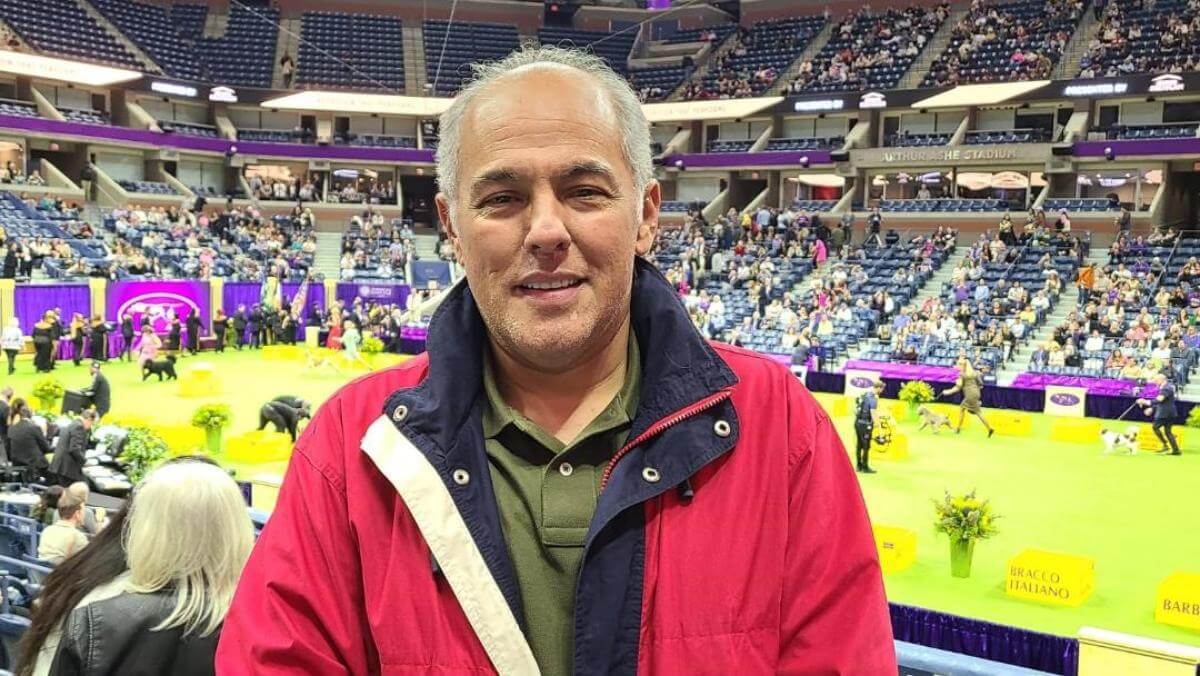


Home » Dr. Renato Mendez | Stonewallmen

Dr. Renato Mendez
1. My name is Dr. Renato Mendez, and I am a veterinarian with a special interest in canine reproduction and aesthetic surgery. I live and practice in Fort Lauderdale, Florida. I received my first Doberman Pinscher at the age of twelve, and since then, I have been involved with this wonderful breed. Recently, I have included another breed, the Bulldog, on my list, but the Doberman will always be my priority. I started breeding in 1990, and my kennel name is Stonewallmen. Lately, I’ve been breeding Dobermans with my friend, Fabian Gotlib, from Hamlet Kennels.
2. Besides the physical characteristics such as size, coat color, bone, structure, gait, and angulations, temperament is a very important aspect of my breeding program. Dobermans should be determined, energetic, watchful, alert, fearless, loyal, and obedient. They should never be shy or vicious.
3. I believe there are enough homes for purebred puppies. It is our responsibility as veterinarians, breeders, handlers, judges, and all those involved in our sport to educate and promote the benefits of purebred dogs.
4. As both a breeder and a veterinarian, I am committed to staying current with the latest technologies in testing, procedures, and diagnostic tools. The advancements in DNA and genetic testing also enable us to plan our breeding programs more effectively.
5. In my opinion, purebred dogs are still highly valued for traits like predictability in temperament and appearance, as well as in certain activities like dog shows or specific working roles (e.g., Therapy or Service Dogs). That is why, as a veterinarian who specializes in reproduction, I am passionate about breeding pure breeds ethically and morally. There are standards that need to be kept for each canine purebred and that is one of my goals for our industry and community—to continue to appreciate purebred canines.
6. The main trend, in my opinion, is that there has been growing awareness in the dog show world about the importance of principled breeding practices. Some dog show organizers and breeders are pushing for more transparency regarding breeding practices, health testing, and the welfare of the dogs involved. The sport is a great way to showcase dogs’ talents and preserve specific breeds. A growing number of dog shows and breeders are advocating for ethical breeding practices, which include prioritizing the welfare of the canine participants, ensuring dogs are not over-bred, are properly socialized, and are raised in humane conditions.
7. The world of dog shows is evolving in response to societal shifts, with a greater focus on health, ethics, and the welfare of the dogs involved. There seems to be a great focus on temperament and behavior as essential components of evaluating a dog. Many show organizations and breeders are putting more importance on breeding dogs that are not only physically conforming to their Breed Standard, but are also well-adjusted and stable in temperament.